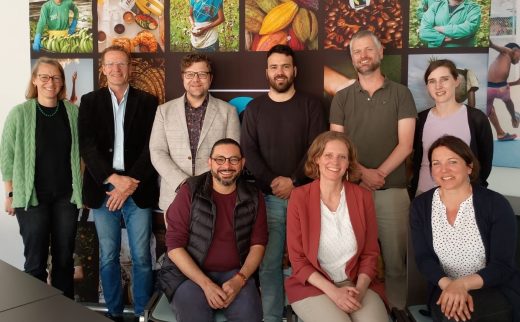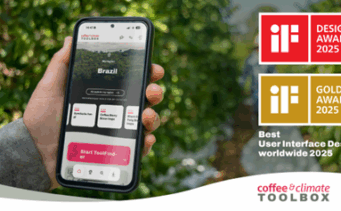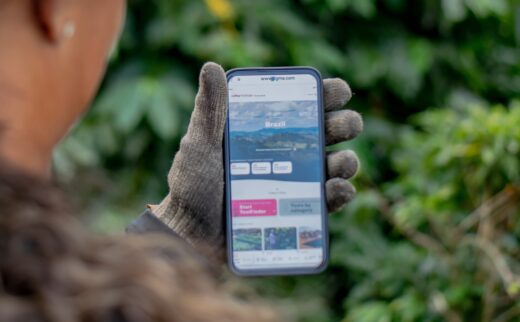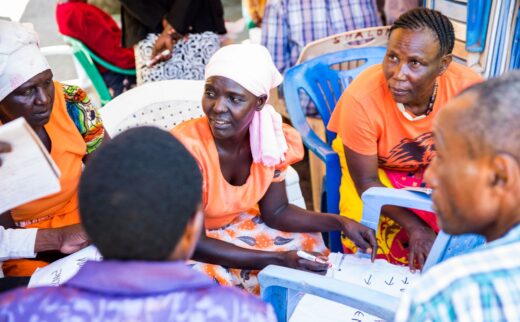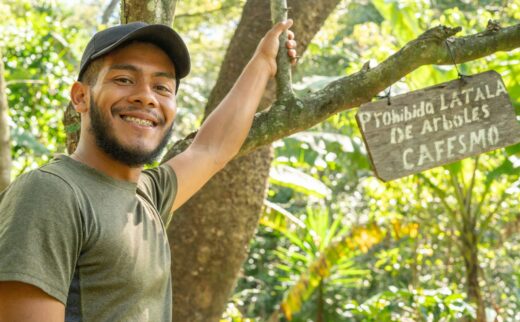Promoting the c&c gender component in Tanzania
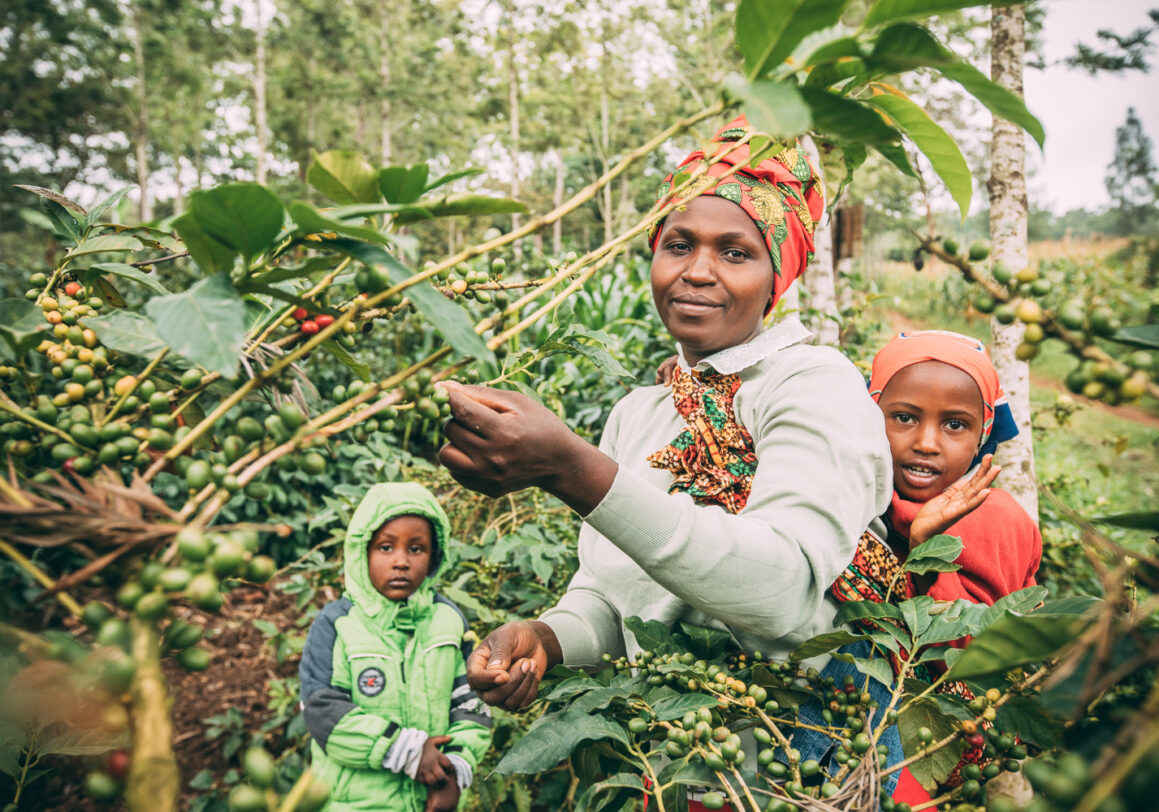
Mbeya, Tanzania – October 1st, 2018 – “This energy saving stove has reduced my time to collect wood and has no smoke emission. Now there is more time for me.” Ester Mwaulezi is very happy about the improvement in her daily life. She is a coffee farmer from Mbeya, in rural areas of Southern Tanzania. In her surrounding, women spend up to three hours per day for fetching water and for collecting firewood. At the same time water is getting scarce. Deforestation makes it more difficult to collect firewood in addition to causing distortions to the water regime in many areas. “We rural women get up early in the morning to start our work in the field. Before we go home to cook we have to gather firewood in the woods. In the evening I´m really tired.”
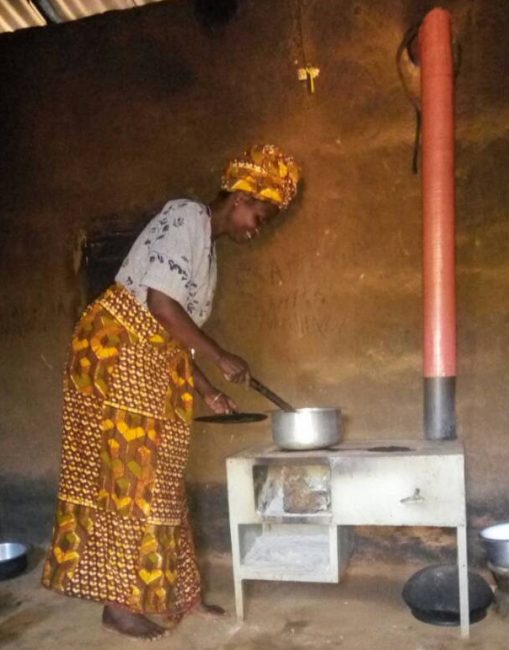
Women in coffee production cannot be empowered without their role in addressing climate change. Through its gender component c&c is promoting climate resilient household practices in Tanzania. c&c introduces practical and time-saving technologies such as clean and efficient cooking stoves, solar energy and domestic rainwater harvesting. These practices are addressing women’s “time poverty’, increasing the household’s members’ health, helping them to save money and protecting the environment simultaneously.
Like in the case of Ester Mwaulezi the use of energy saving cookstoves enables to use less firewood through improved combustion system.
Another example is the promotion of domestic rainwater harvesting that improves access to water and hence reduce workload from fetching water, especially for women. Joyce Hamala, a coffee farmer from Tanzania, states: “Since I´ve installed a domestic rainwater harvesting system I have enough water for a couple of months. In the past I used to go to the stream to fetch water daily. Sometimes I spent a lot of time looking for water, especially during prolonged drought periods. The saved time through rainwater harvesting allows me to fully invest my time in production and other activities.”
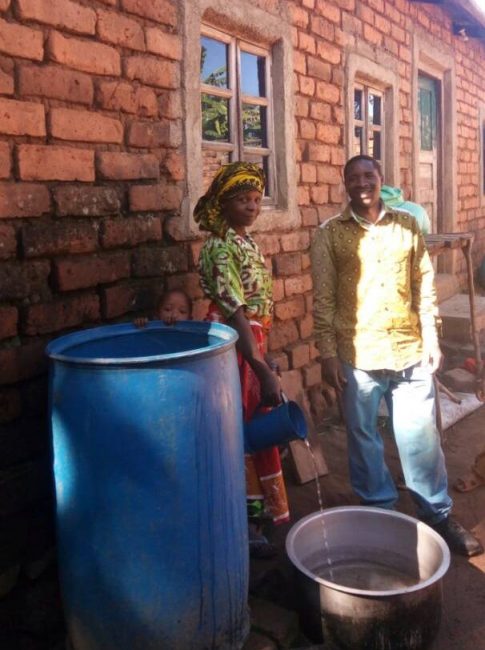
Through its gender component, c&c raises awareness of climate resilient household practices and links to local suppliers of such tools. Moreover, c&c provides training for the usage.
Webster Miyanda, c&c field operations manager from Tanzania, states that incorporating the gender approach in climate projects, goes beyond climate-smart practices on the household level: “Saved time due to practical and time-saving technologies allow farmers like Ester Mwaulezi and Joyce Hamala more frequent participation in training activities. At the same time they become drivers of climate-smart agronomy practices.”
Since women are providing most of the workload on the coffee fields and in households they are more vulnerable to climate change than men. It is therefore vital that women are able to participate in training on climate change in order to ensure that effective adaptation can take place. On top of that, they are rarely involved in higher value-generating activities. Income from their family’s coffee field is mostly channeled through the men without a common decision-making process at the household level. “We believe that strengthening their rights, supporting their participation in household decision-making, incorporating them into farmer organizations, and empowering their knowledge supports families and communities to grow stronger“, says Webster.
Thus, the c&c gender component in Tanzania includes the promotion of joint decision making as well as the stronger participation and integration of women into management processes and structures in coffee farmer organizations.
We are expanding our gender-focused climate component. Interested in learning more? Get in in touch: https://coffeeandclimate.org/join-the-network/
